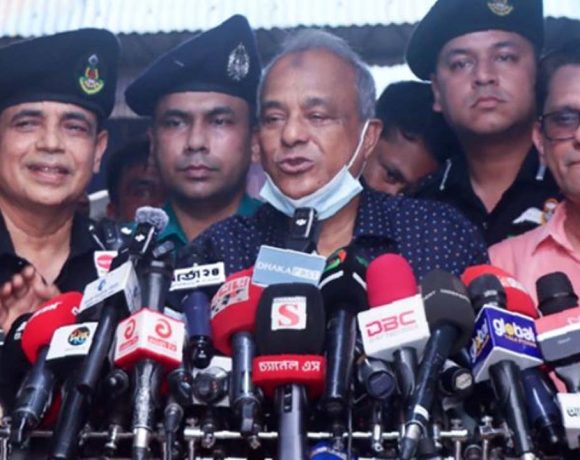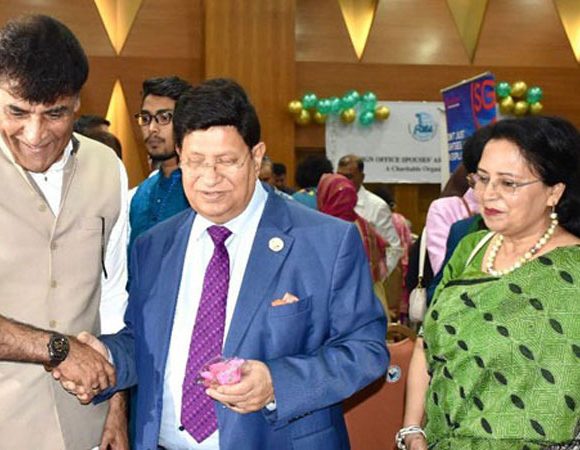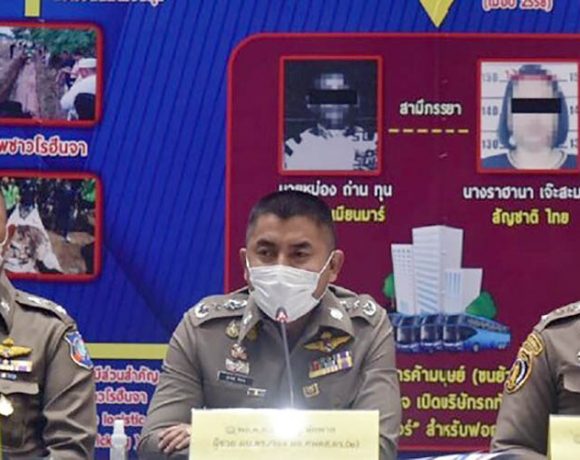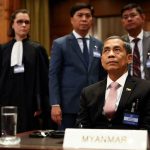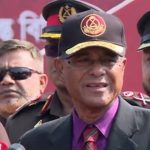Myanmar’s Junta offers villages, but Rohingya won’t return without guarantees

NEWS DESK
Myanmar’s junta has declared its intention to construct 20 villages as part of a repatriation initiative aimed at returning numerous Muslim Rohingya individuals who had escaped a crackdown and sought refuge in Bangladesh. However, members of the Rohingya ethnic group have expressed deep mistrust in the ruling regime and have rejected this offer.
Myanmar’s government has made at least two previous attempts to encourage Rohingya to return to their homeland since the military conducted a harsh offensive in their native Rakhine state in August 2017, but both efforts yielded minimal success, reports RFA.
Presently, approximately 1 million Rohingya, including around 740,000 who fled the offensive, reside primarily in densely populated refugee camps located in Cox’s Bazar, southeastern Bangladesh.
On Tuesday, Union Minister Ko Ko Hlaing told state-owned media that 7,000 Rohingya will be repatriated from Bangladesh camps to Myanmar by the end of the rainy season next month.
He said 20 new villages will be constructed for the Rohingyas and that plots for 1,000 houses had already been cleared for those who return. The union minister claimed that China and “other members of the international community” had agreed to provide assistance in building additional homes.
The comments came days after the junta invited officials from foreign embassies – including Bangladesh, Thailand, and Sri Lanka – to examine arrangements for readmitting Rohingya refugees to Myanmar.
‘Just for show’
But while the junta appears to be rolling out the red carpet to the Rohingya, residents of the camps in Bangladesh told RFA Burmese they believe the offer is a trick.
“They are doing it just for show, due to international pressure,” said Ali Jaina, a Rohingya living in the Balukhali refugee camp in Cox’s Bazar. “They have been putting on these kinds of shows since we arrived [in Bangladesh]. But no one has gone back.”
Al Jaina said that the Rohingya in Bangladesh “have no confidence” in the junta.
“How can they give us peace when they can’t even make peace with the ethnic groups who already live there?” he said.
Following their seizure of power in a coup d’état in February 2021, Myanmar’s military has found itself entangled in a complex and multifaceted conflict involving armed resistance groups and various ethnic armies situated in the country’s remote border regions.
Since assuming control, junta forces have been responsible for the deaths of over 4,000 civilians, as reported by Thailand’s Assistance Association for Political Prisoners (Burma).
Al Jaina dismissed the junta’s plan to repatriate Rohingya as a “program that will move refugees from one camp to another,” and suggested that those who accept will face an even worse food crisis than they do in Bangladesh, due to restrictions their ethnic group faces in Myanmar.
‘No desire’ to return without guarantees
Another Rohingya at a camp in Bangladesh said they would only return if they are guaranteed citizenship, access to education, freedom of movement, and the right to resettle their original land.
“If we are provided with these, we will go back right away,” the refugee said, speaking on condition of anonymity citing fear of reprisal. “No one would need to plan for our return or persuade us to go back – we would do it ourselves. If not, none of us are going to go back. We have no desire to do so.”
Union Minister Ko Ko Hlaing has said that returnees will be issued a “screening card” for citizenship, although they will need to apply. Rohingya who want to return to their original communities can do so “with official approval from village and state authorities,” he said.
Attempts by RFA to contact Hla Thein, the junta’s spokesman for Rakhine state, for comment on the screening process for readmitting Rohingya went unanswered Tuesday.
Nay San Lwin, co-founder of the Free Rohingya Coalition, said that the junta’s readmission plan will fail because it does not provide any substantial opportunities for the Rohingya refugees.
“The key to the readmission process is providing the Rohingya with the right to citizenship and [recognition of their] ethnicity,” he said. “Without these, no one will return. Simply moving refugees from the camps in Bangladesh to other camps on the Myanmar side won’t be successful.”
In both 2018 and 2019, Myanmar and Bangladesh made two separate efforts to repatriate approximately 6,000 Rohingya individuals. Unfortunately, these attempts failed to gain acceptance among the Rohingya population, primarily because they did not include assurances regarding citizenship or the restoration of their original communities.
After assessing the situation in Rakhine state, the United Nations High Commissioner for Refugees (UNHCR) announced on 19 March that the conditions in the region were deemed unsuitable for the Rohingya people to return to their homes in the foreseeable future.

